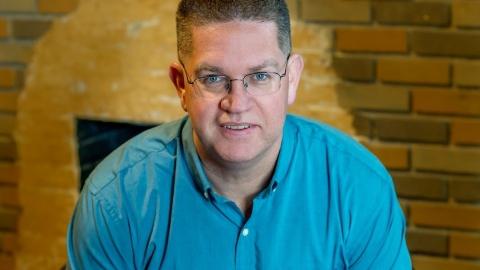Terp Insights: Quick Advice for Better Decisions for Students, Professionals and Business Owners
Terp Insights: Quick Advice for Better Decisions for Students, Professionals and Business Owners

By Matthew Johnston ’97
In 1942 sociologist Robert K. Merton published an article titled “The Normative Structure of Science” that laid the foundation of a model for better decision-making. Merton was specifically looking at the nature of scientific inquiry and institutions that influenced scientific inquiry. Merton, while focused on the scientific community, produced a paper that provides an outstanding structure for making better decisions as an individual, for your career and your personal life.
To apply Merton’s model, a person should gather a group of individuals to form a “Truthseeking Group.” The group should be comprised of individuals with a diverse range of backgrounds, opinions and viewpoints. Once assembled, the group would then apply Merton’s principles necessary for a group to make better decisions. Merton labeled these principles CUDOS: Communism, Universalism, Disinterestedness and Organized Skepticism.
Briefly put, Merton’s principles are:
• Communism is the communal ownership of data and information. The group has to share all of the information available without bias, misrepresentation or hiding any information.
• Universalism means that the group will apply previously agreed-upon, uniform standards to assess the claims, evidence and data given to the group.
• Disinterestedness means that the individual members will set aside, and guard against, their personal conflicts of interest that may influence the group’s evaluation of the data and decision.
• Organized Skepticism is a structured, open discussion among the group members to encourage engagement and, most importantly, dissenting ideas and viewpoints.
The goal of CUDOS is not to criticize a single decision, but to analyze how the decision was made. Ultimately, the group’s objective is to build a better decision-making process.
In my practice as an attorney, I encourage my clients to develop a management team of outside professionals to help improve decisions about the business. The management team gives input to help a business owner make decisions, applying Merton’s CUDOS method. Even if you don’t own a business, Merton's principles apply to any person wanting to make better decisions in their career or personal life.
My advice to anyone looking to advance their career is to gather a “Truthseeking Group” of colleagues (not necessarily friends) with whom you can apply Merton's principles. The idea is simple: by engaging in critical review of decisions in your life, you can develop a decision-making process that yields better results over time and achieve whatever goal you have in mind.
Resources:
Duke, A. (2019). Thinking in Bets: Making Smarter Decisions when You Don't Have All the Facts. Portfolio.
Merton, R. K. (1973). The sociology of science: Theoretical and empirical investigations. University of Chicago press.
Surowiecki, J. (2004). The Wisdom of Crowds (Anchor, New York).
Matt Johnston (#Mattthelawyer) is an attorney and the founder of the Johnston Business Law Group in Frederick, MD where is practice focuses on establishing and advising small businesses on operations, employment law, trademarks, copyrights, and business contracts.
He is also the co-owner of Jammy Jams, a music company creating lullaby music using popular music as the source material. Matt is a 2005 cum laude graduate of the Columbus School of Law at the Catholic University of America and a 1997 cum laude graduate of the University of Maryland-College Park with a bachelor’s degree in Government & Politics. Matt lives and works in Frederick, MD and when not working, can be found watching, playing, screaming, crying, or arguing about soccer.
###
Elevate the value of your degree and advance your goals - read from successful Terps for crucial insights on career advice, professional development and more. Are you an expert? We’d love to hear from you. Reach out to Christine Kunkel with your story. Interested in keeping up with the latest career-based insights? Join our Career Tips for Terps Newsletter. For even more content, follow the Alumni Association on Facebook, Instagram and Twitter.
